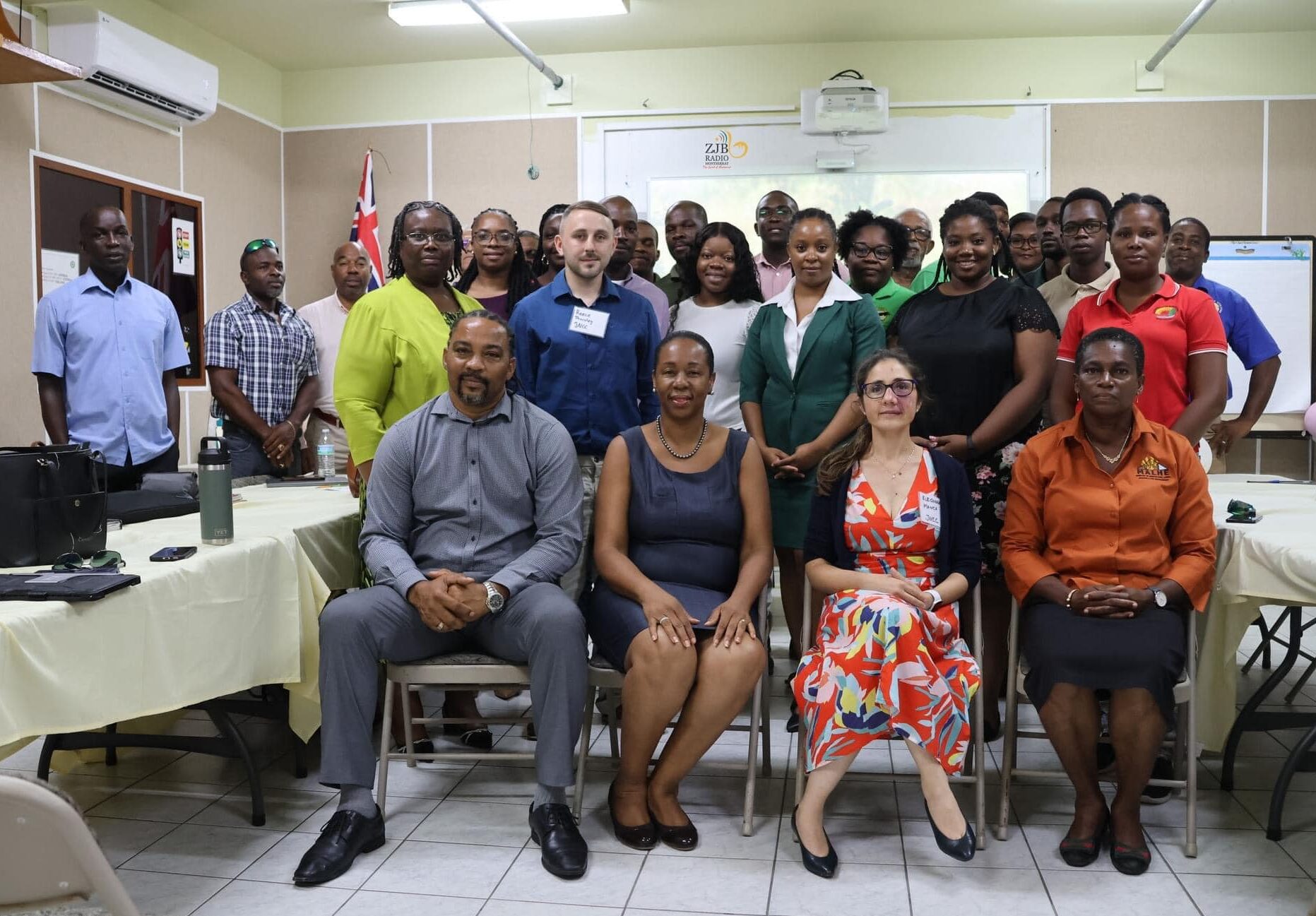Local and international experts gathered together in Montserrat this week to discuss conservation of the island’s diverse and unique environment.
On Monday, 15 July, they convened for a workshop titled, ‘Biodiversity condition assessment of protected areas’, which focused on strategies for preserving species and habitats.
The Ministry of Agriculture, Lands, Housing, and the Environment hosted the event in collaboration with the United Kingdom’s Joint Nature Conservation Committee.
Speaking at the opening of the workshop, environment minister Crenston Buffonge said, despite its size, Montserrat has ecological and biological resources which are of national, regional and global significance.
“The reality is that Montserrat is the same as some of the other developing states. It depends on our tourism, our construction, our mining and our agriculture,” he told attendees.

Buffonge said these elements are known to place substantial pressures on vulnerable ecological systems.
“As such, if not addressed, these pressures can result in loss of biodiversity, harm to our social structures, including livelihoods and numerous amounts of goods and services,” the minister said.
He stressed that the island needs to embrace opportunities for scientific research, engagement with competent external agencies and the transfer of knowledge and skills “as we’re doing here today”.
“Additionally, advanced technologies will be required to not only build on conservation practices, but to positively influence the decision making processes in relation to conservation,” he said.
Diverse species
Permanent secretary Beverley Mendes told attendees about Montserrat’s remarkable biological diversity.
She said the island is home to 1,241 invertebrate species, with 120 of them being identified as possibly endemic to Montserrat.
There are three species of amphibians, 11 species of reptiles, and 102 species of birds, including 34 breeding species, 90 regular migrant and 11 range restricted species.
Montserrat also has 10 species of bats, 795 known native plant species, of which 78 are restricted range, and three are endemic plant species.
The island’s marine habitat is home to 37 true coral species, three sea grass species, 37 algal species and 67 fish species.
Four species of marine turtles forage and nest on the island’s western beaches, including the hawksbill, green, leatherback and loggerhead turtles.
‘Tip of the iceberg’
“This list is only the tip of the iceberg,” Mendes said.
“It underscores the need for focused conservation initiatives in order to not only preserve the richness of the island’s biodiversity, but to encourage sustainable livelihoods and quality of life.”
She said the ministry is dedicated to ensuring that biological resources on the island are given the conservation priority they deserve.
Through the Department of Environment, the ministry implements programmes, with the help of local, regional, international entities, to identify and manage threats to the island’s biodiversity, Mendes said.
The Joint Nature Conservation Committee is the statutory adviser to the UK government and devolved administrations on local and international nature conservation.
Its work contributes to maintaining and enriching biological diversity, conserving geological features and sustaining natural systems.
The committee is an executive non-departmental public body, sponsored by the Department for Environment, Food and Rural Affairs.





